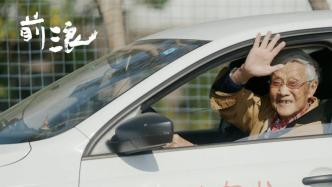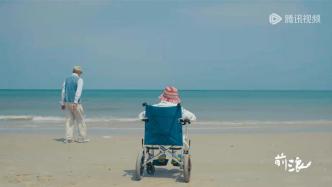
Diana Asier, one of the most outstanding editors in Britain in the 20th century, felt at the age of 89 that "there are so many books about maintaining youth, but not many about withering", so she wrote her autobiography "The End of Youth". In the book, she wrote: "Although human life is as fleeting as a flash compared to the universe, from its own perspective, it is still surprisingly broad and can accommodate many different and contradictory aspects. A person's life can contain tranquility and turmoil, heartbreak and happiness, coldness and warmth, grabbing and giving, and even more acute contradictions..."
Diana Asier "shed her skin and danced with her bones", and courageously reviewed her life since her retirement at the age of 76, writing about her love and desires, and the actual feelings of aging and approaching death... and she also firmly believed: "I have never enjoyed myself so comfortably and for so long in my life as I do now."
1963 was China's first "baby boom" in demographic terms, with nearly 30 million people born that year. Now, those born during the "baby boom" are about to retire, and the curtain of aging has opened. It is expected that by 2035, China will enter a severely aging society.
What kind of life are they leading in their "twilight years"? What kind of joys and sorrows do they have? The documentary "Front Wave" tries to give the answer. The directors focused their cameras on the elderly, and through long-term tracking and filming, edited them into 7 episodes: "The Ageless God of Love", "Lover", "Tomorrow Will Be Better", "Guardian", "Mother's Writing Plan", "Taking a Bath", and "Going with the Flow". These images "reveal the real picture of elderly life and also show a cross-section of Shanghai, a severely aging city. We hope to use vivid character stories to answer and alleviate the public's stereotypes about the elderly, so that the elderly can be viewed as specific "people"."
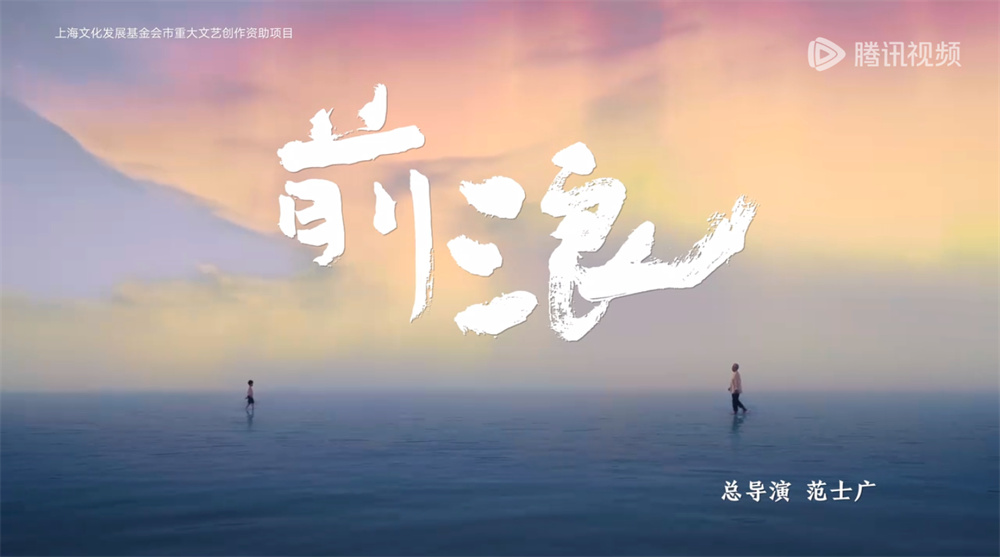
Poster of "Front Wave"
Replacing the People's Park which is cold in winter and hot in summer, IKEA has become the "lower corner" for blind dates among the aunts. Here, you can buy a simple meal for a dozen yuan, there are free refills of coffee, and there is a naturally arranged "blind date scene". The elderly have gathered here for more than ten years, moving from one table to another, from one group of people to another, going around in twists and turns, trying to find love.
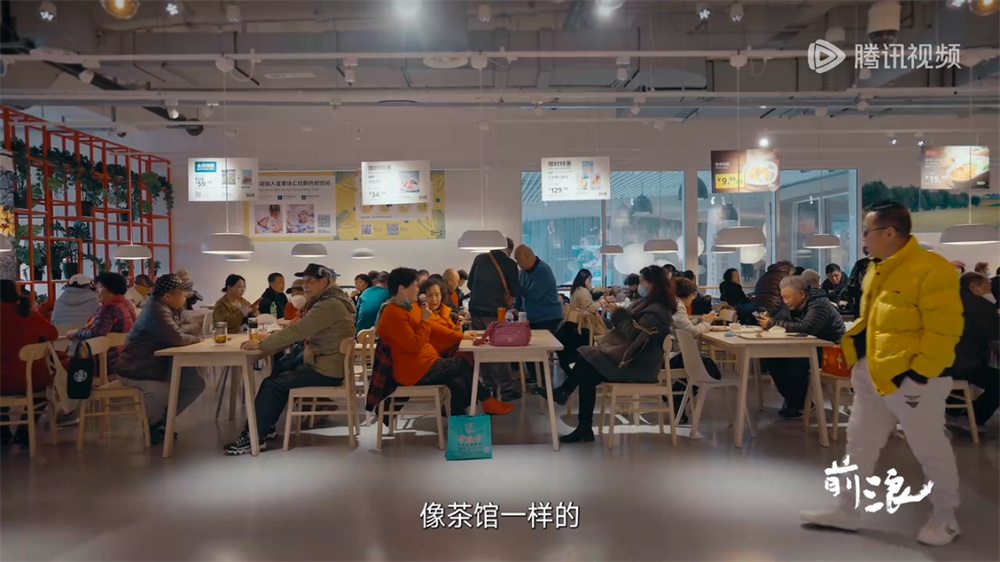
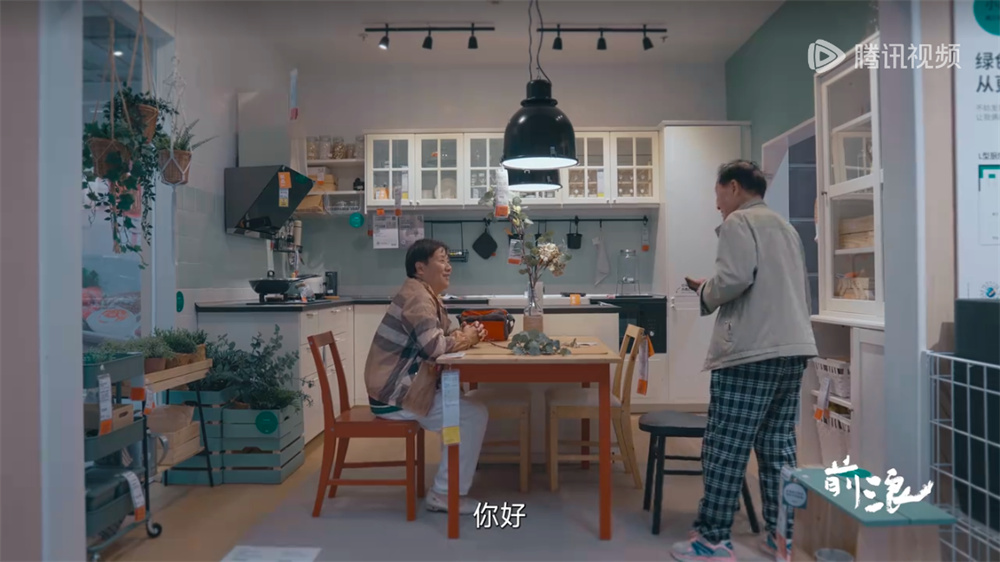
IKEA as a "matchmaking corner" for the elderly
The camera follows the 85-year-old Abao as he begins to tell the story of his three marriages. In his story, his first wife was in a state of schizophrenia for more than ten years, remarried after divorce, and eventually committed suicide by jumping off a building; in his second marriage, the woman was all about her children and was not a good match in Abao's eyes; in his third marriage, Abao married a disabled person who passed away a few years ago. The price Abao paid for these three failed marriages was three houses and his own long years. Now he is 85 years old. He is still looking for love.
His favorite "Momoe Yamaguchi" doesn't like him, but he still brings a big bag of food to fill the refrigerator of "Momoe Yamaguchi"'s house. A Bao always squanders his 8,000 yuan monthly pension. In front of the camera, A Bao always looks nervous, speaks very fast, and is in a state of excitement from time to time. When life is good, you must enjoy it to the fullest. This is A Bao's lifestyle.
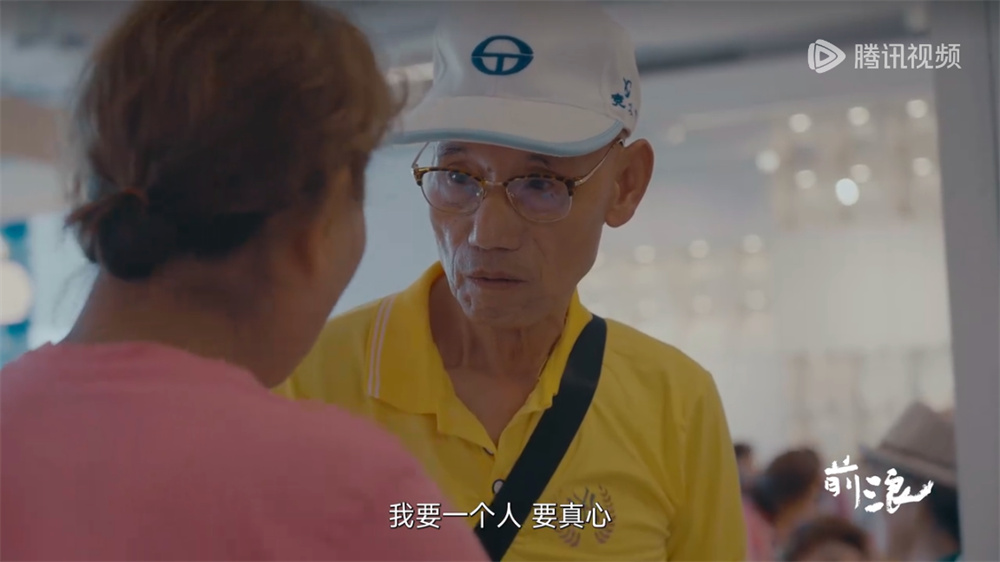
Po
The story of another male protagonist, Lao Zhang, is more tragic. He and his girlfriend Lingling also traveled around the world. Now Lingling seems to have a better choice, and Lao Zhang, who is old and slow, and always dozing off, has been "broken up". He moved the things he left at Lingling's house and returned to a lonely life. In the film, he sits alone in a small space, feeling sad about the breakup...
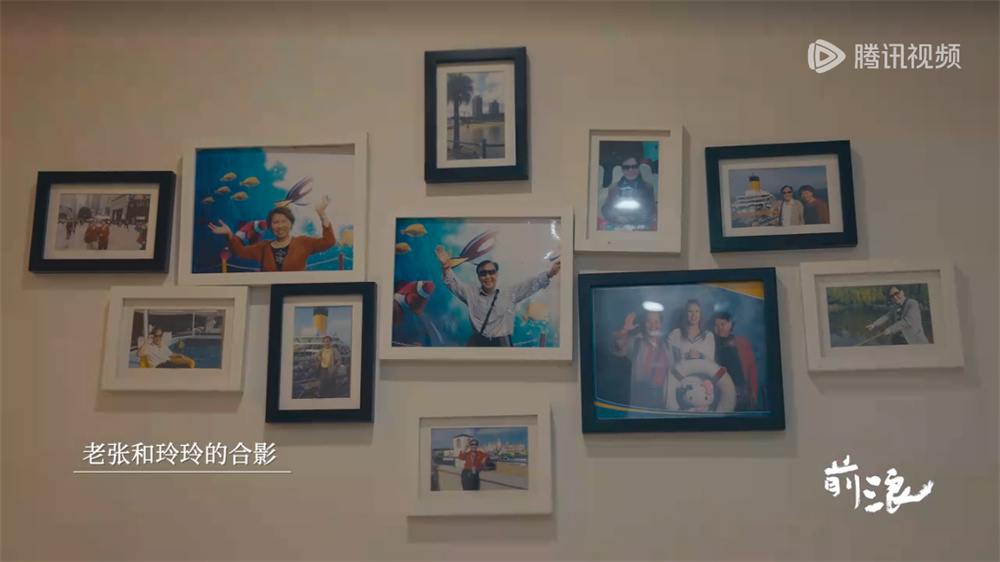
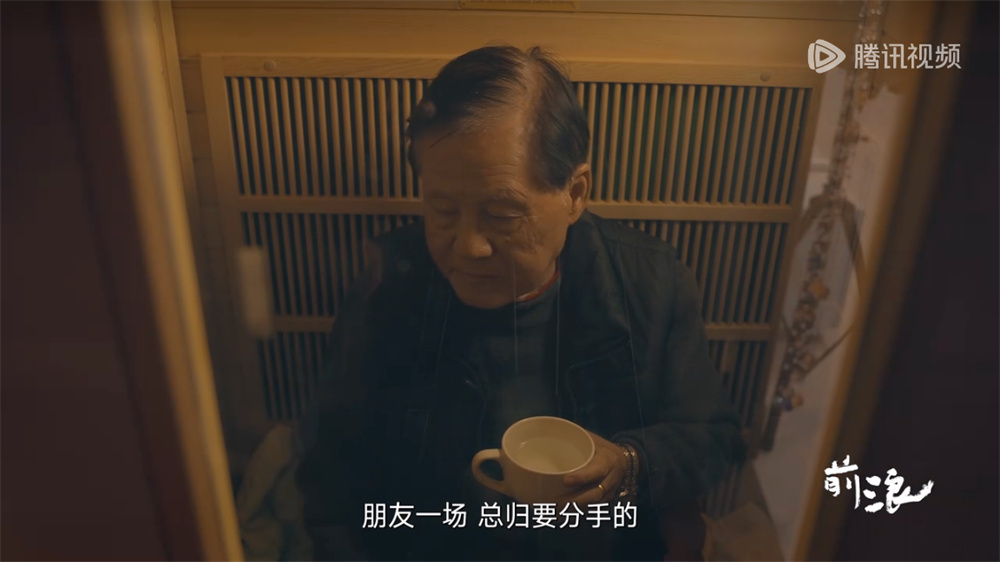
Screenshot of Front Wave
Another protagonist of "The Eternal Love" is Aunt Jin, who, like Abao, shows passion for life and yearning for love. She wears an exquisitely tailored cheongsam and is graceful in front of the camera. She is unwilling to have a mediocre relationship and firmly believes that "there should be physical love between men and women."
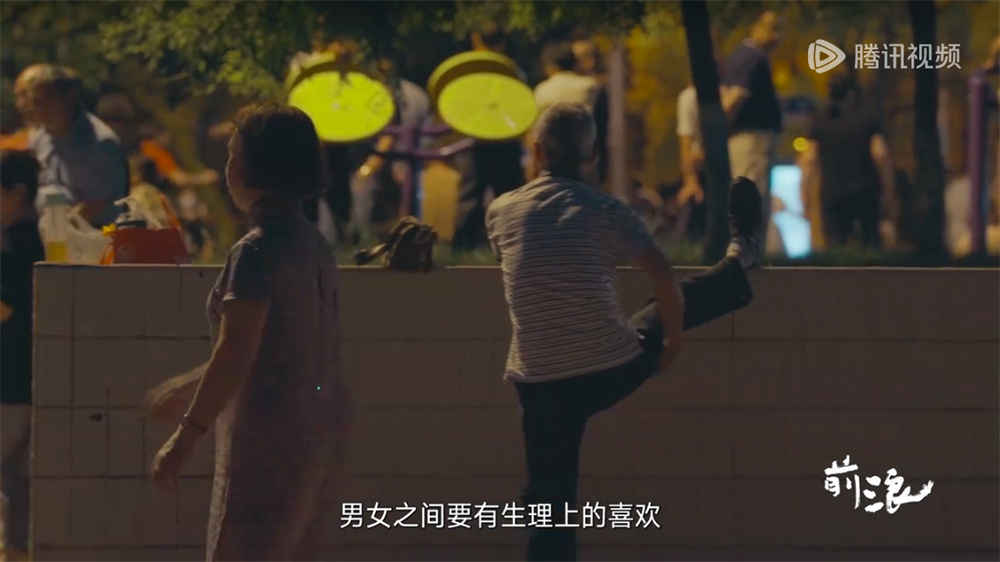
Screenshot of Front Wave
According to Fan Shiguang, the chief director of "Front Wave", and Chen Zipeng, the sub-episode director of "The Eternal Love God", there were always many surprises during the filming process at IKEA. The elderly were always wary of outsiders with cameras, and getting close to the elderly began with a conceptual discussion - what is love? What do you think love is like for the elderly? In such sharing, everyone eventually got to know each other and opened their hearts.
We have all been poisoned by the blind date videos of the elderly pushed by short videos. The elderly are not shy and speak out golden sentences: "It's not my cup of tea, I'm so frank!" "You are less than 1.7 meters tall, what can you do with 3,000 yuan?" However, when we have enough patience to listen to their stories, we will find that life and feelings are never judged in a few words - Aunt Jin repeatedly considers and searches for the "door to the mountain", and Lao Zhang dyes his hair black again after a sad breakup. The IKEA in "The Ageless God of Love" is lively but alienated, and there are always people who are lonely in a noisy wedding. It may be a minimum respect and kindness to not speculate on any kind of love with a curious color.
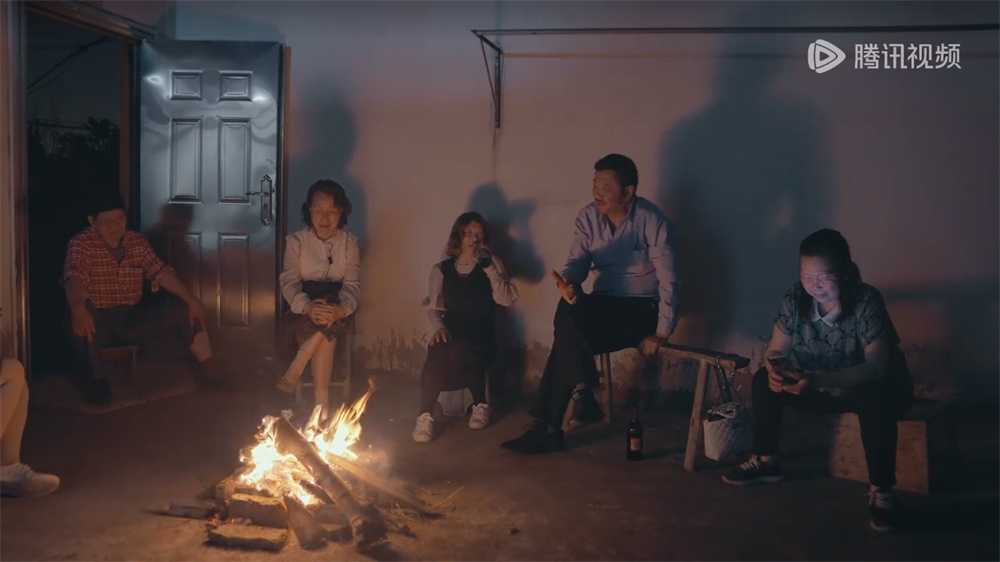
Screenshot of Front Wave
The uplifting passion for life in "The Eternal God of Love" continues in "Tomorrow Will Be Better" and "Mother's Writing Project", and is written to an even more extreme level.
In "Tomorrow Will Be Better", the program team continued to follow the journey of a 96-year-old man to take the driving test. It took him two hours to take the bus to the driving school and two hours to learn to drive. He made a lot of efforts to get a driver's license. He broke the stereotype of the elderly with a controversial choice.
From the perspective of young people, it seems difficult for us to understand the old man’s choice. Coincidentally, in “Twilight Approaches”, the author also uses a whole chapter to talk about why she is reluctant to give up driving. In her opinion, driving is equivalent to freedom. She wrote:
"Without help, like a cane or a walker, I couldn't walk more than a few steps without falling. The car became a life. You lurch toward it, you wade your clumsy body into the driver's seat, you relax, and then, voila! You're normal again! You whiz off, free and almost young again, like everyone else."
The idea that driving is equivalent to expanding the radius of life and being able to reach a bigger world is also the obsession of Grandpa Xu Wei in "Tomorrow Will Be Better". In the first half of this episode, the whole story falls into a heavy and tired state as he makes mistakes again and again, asks questions again and again because of his hearing loss, and the helpless expressions of the coaches. But we all noticed that Grandpa Xu at the driving school is in a completely different state from him at home: at the driving school, he looks particularly young because he is full of enthusiasm for learning to drive, but when he returns home, his wife walks with difficulty, and the dim and narrow room, both old people are old at the same time.
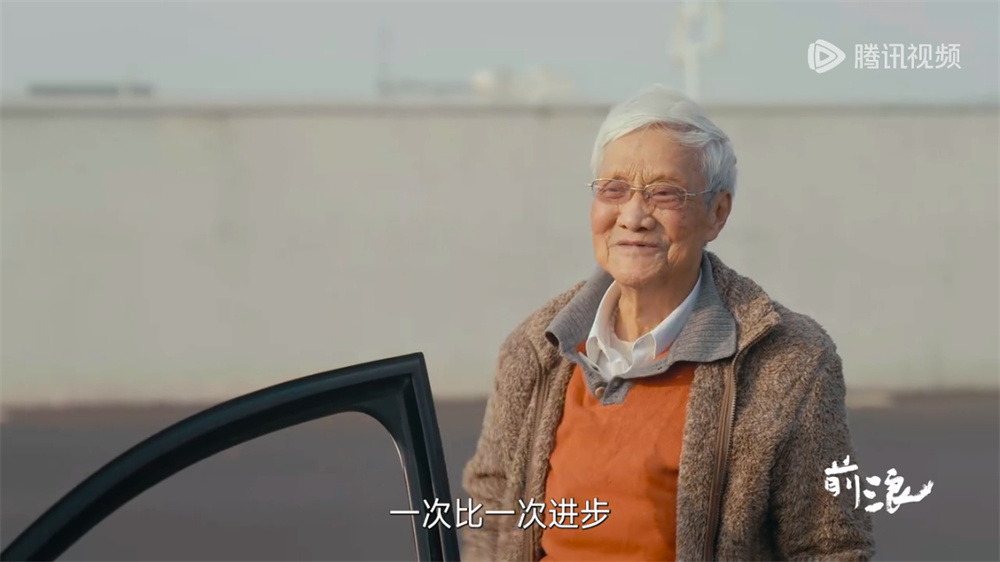
Xu Wei at driving school
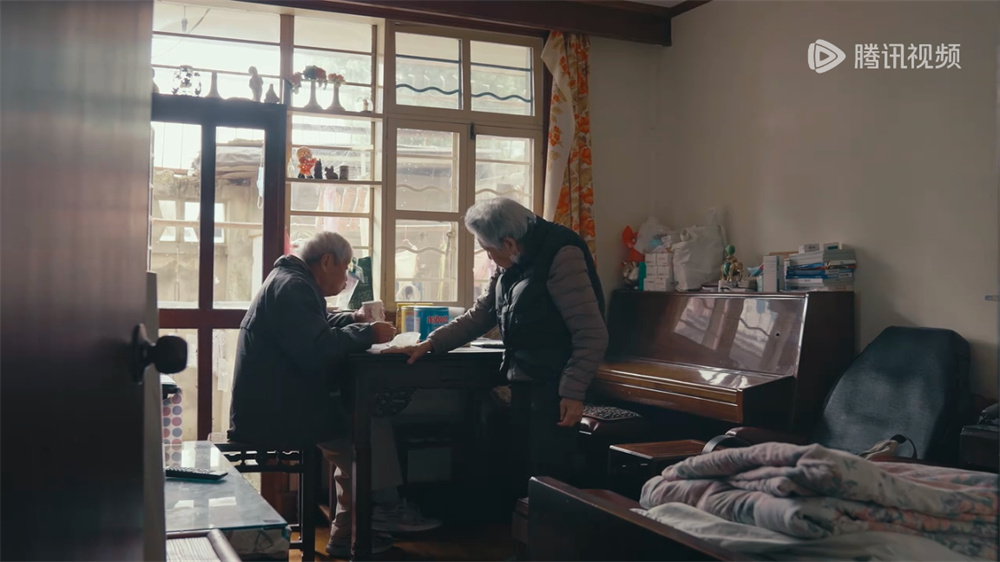
Xu Wei and his wife
In "Front Wave", almost every elderly person will experience illnesses and accidents of varying sizes during the aging process, and this may be aging itself. Xu Wei had shoulder problems due to repeated practice of turning the steering wheel; not long after, his wife fell and became bedridden, even refusing to eat. They have also entered old age, and their physical condition is even worse than that of the two elderly people. The daughter covered her face and cried in front of the camera, and the family was in a gloomy mood.
Grandpa Xu Wei's stubbornness and excessive insistence on taking the driver's license test regardless of the specific situation was a burden in the first half of this episode, but in the second half it turned into a huge force to support people's spirit. Grandpa Xu was hard of hearing, so he repeatedly advised his wife: "Take a bite, take a bite"; and he always insisted that "tomorrow will be better", which was like a motto and a belief in his repeated repetition.
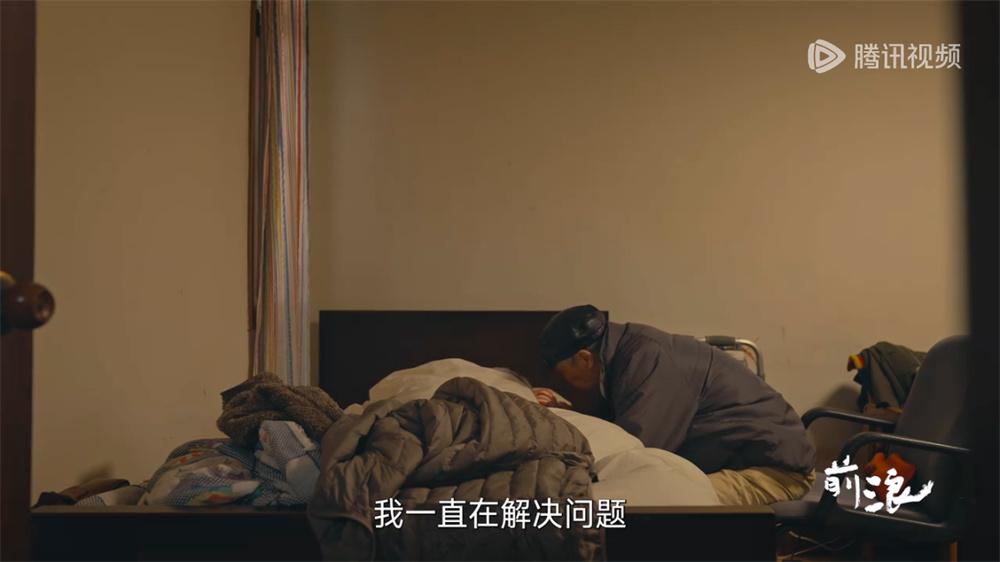
Screenshot of Front Wave
They eventually overcame the disease, and even the passage of time and aging. Although Grandpa Xu Wei failed to pass the driving test, they finally went to Hainan, the place they had always dreamed of. It doesn't matter if the flowers wither, as long as the waves rise, life will continue to be wonderful.
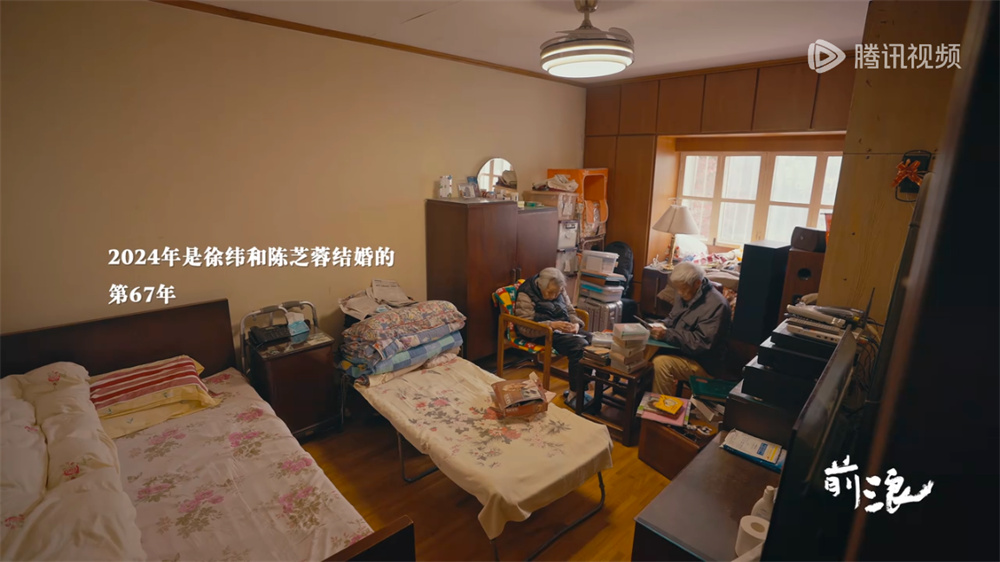
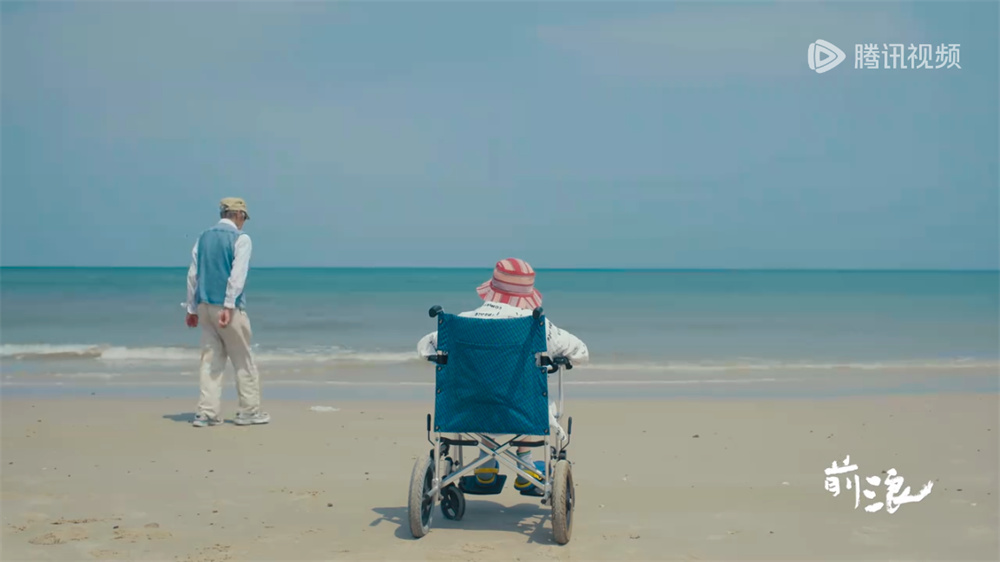
Screenshot of Front Wave
"Front Wave" films the elderly and also shows the state of each family, and the most noteworthy ones are the caregivers: in "The Lover", the elderly father suffers from Alzheimer's disease. Considering that the mother is also old, the daughter has to send her father to a nursing home. In the end, the old father died of a systemic infection in just a few months. The film "The Lover" became a sentimental farewell for the mother. The daughter, who always wears black clothes and calmly persuades her mother, is also complained by her mother for advocating to send her father to a nursing home.
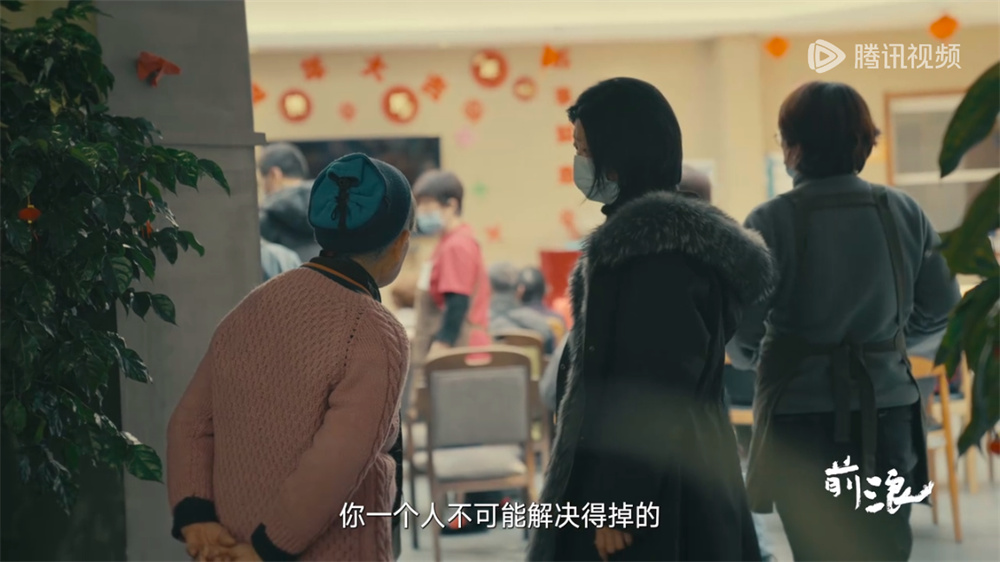
Screenshot of Front Wave
In "The Guardian", 90-year-old Mr. Gong is a solitary elderly man. One day, he accidentally fell on the roadside. 55-year-old Sister Liu passed by and saw him and kindly sent him to the hospital. It was because of this accident that Mr. Gong hoped that Sister Liu would be his guardian. The process of appointing a new guardian was because Mr. Gong had a son, although this son had not appeared for several years and various legal issues were not resolved until Mr. Gong finally passed away.
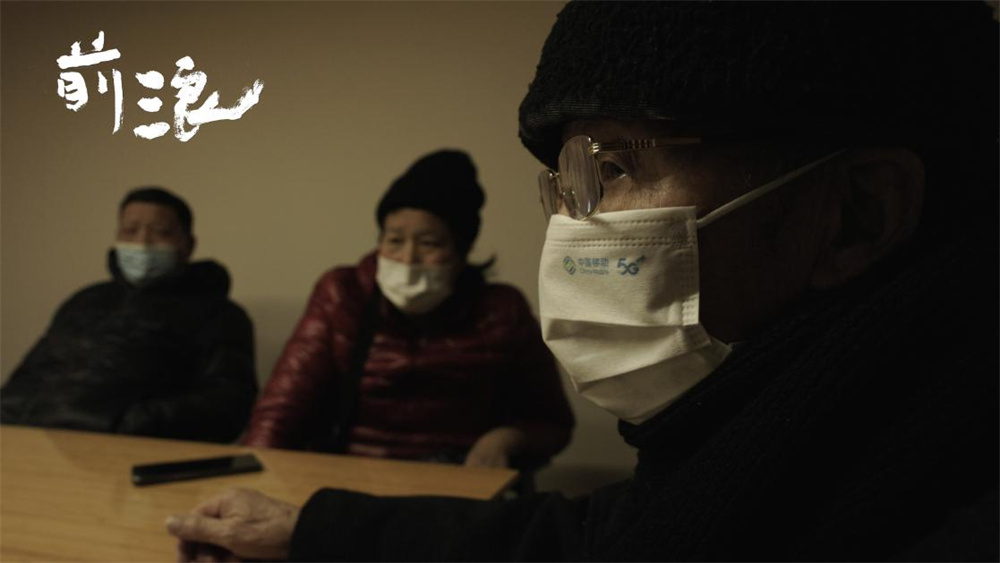
Screenshot of Front Wave
These two cases extend from a family to the entire society. In the aging era, how to care for an elderly person and what responsibilities the family, community, nursing homes, laws and systems should each assume all need to be gradually explored through repeated practice.
Regarding family care, the episode "Mother's Writing Project" in "Front Wave" is refreshing. This episode warmly records a mother and son reconstructing intergenerational communication through writing.
Grandma Xiuying was born in the Hetao Plain of Inner Mongolia. She never left the countryside when she was young. She loves nature and flowers. She moved from the countryside to the city and now has no job or income. Grandma Xiuying is very lonely. Her son Lv Yonglin feels his mother's spiritual dilemma. In order to boost his mother's spirit, they encourage her to write and paint, and set up a "family writing workshop" at home to guide her to rediscover herself.
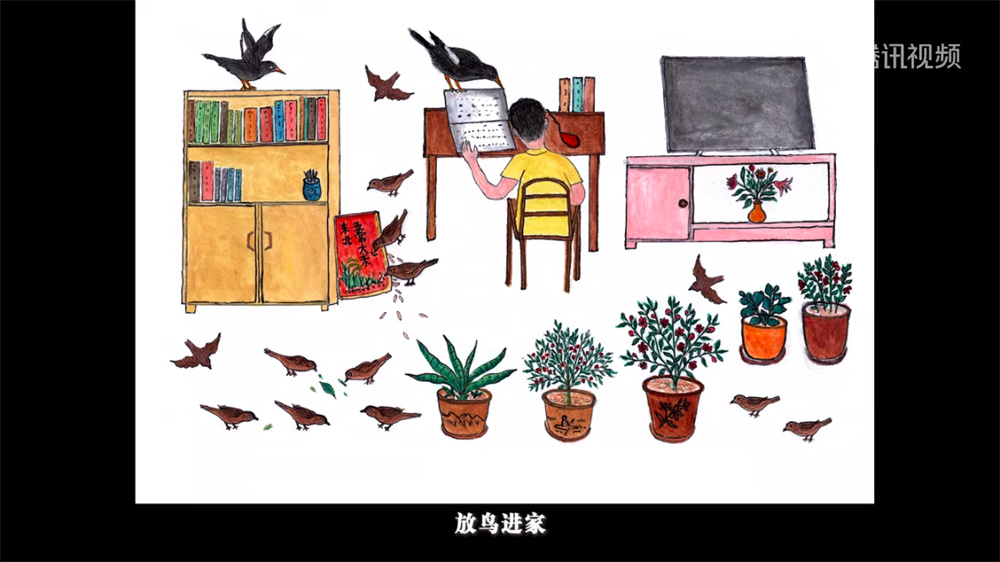
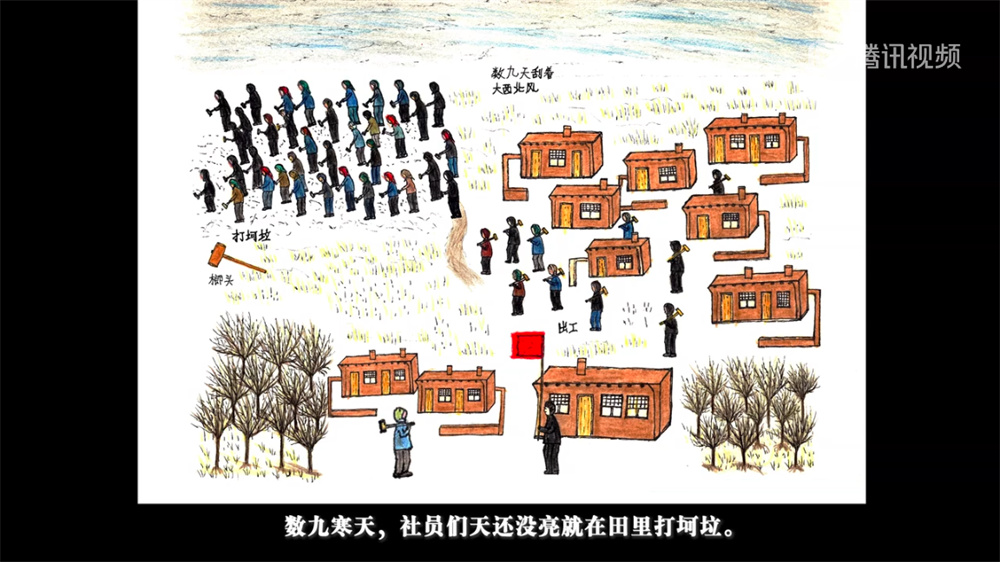
Grandma Xiuying's paintings
This episode presents a very ideal and comfortable family atmosphere, where the family goes outdoors, listens to the birds singing and cicadas chirping, and looks at the stars in nature, drawing strength from the nature that the elderly once knew, felt relaxed and kind to.
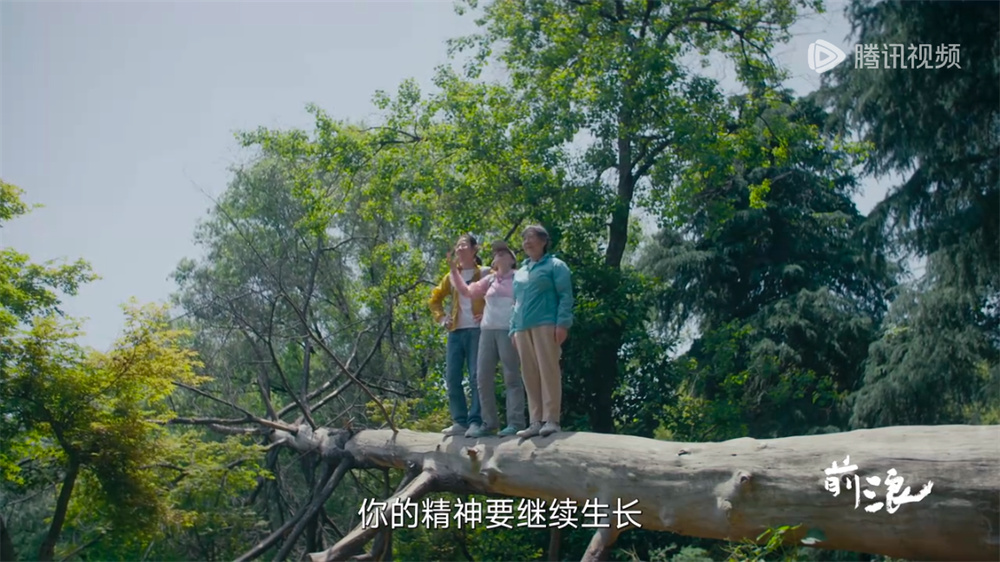
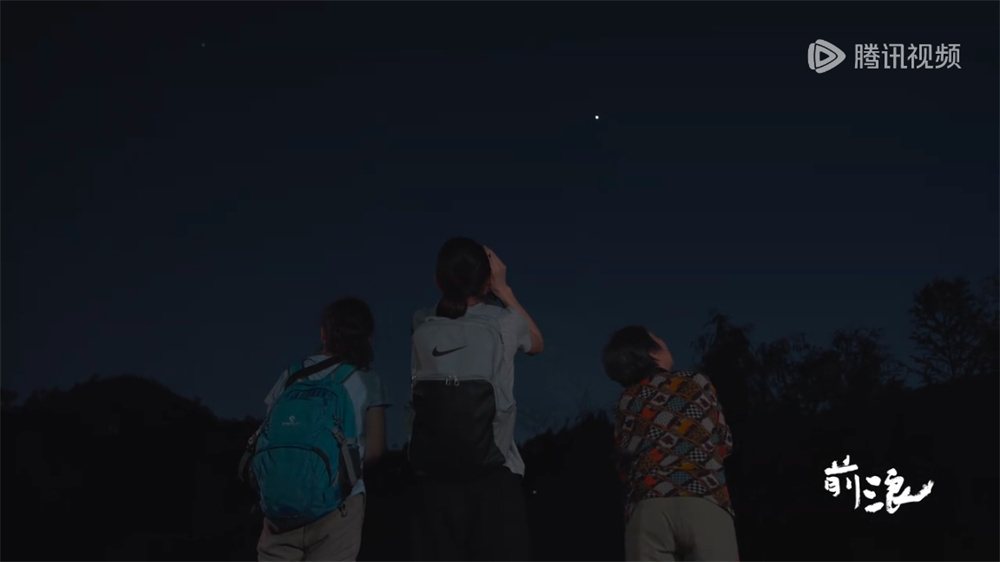
Screenshot of Front Wave
The old man's voice was heard. There are two details in "Mother's Writing Plan": the first is how to write about "Saxaul". The old man has her own ideas, and her son finally recognizes his mother's writing style and feels that knowledge itself has become a burden, and that kind of simplicity and innocence is powerful; the second event is that the mother has her own ideas about her illness, instead of blindly following the judgment of her children, and it is finally proved that her judgment is correct.
Although Grandma Xiuying speaks very little throughout the film and always has a sad expression with her brows slightly furrowed, on the other hand, the colorful paintings she draws and the densely written articles she writes are spread out on the screen, which shows the extremely broad spiritual world of an old woman.
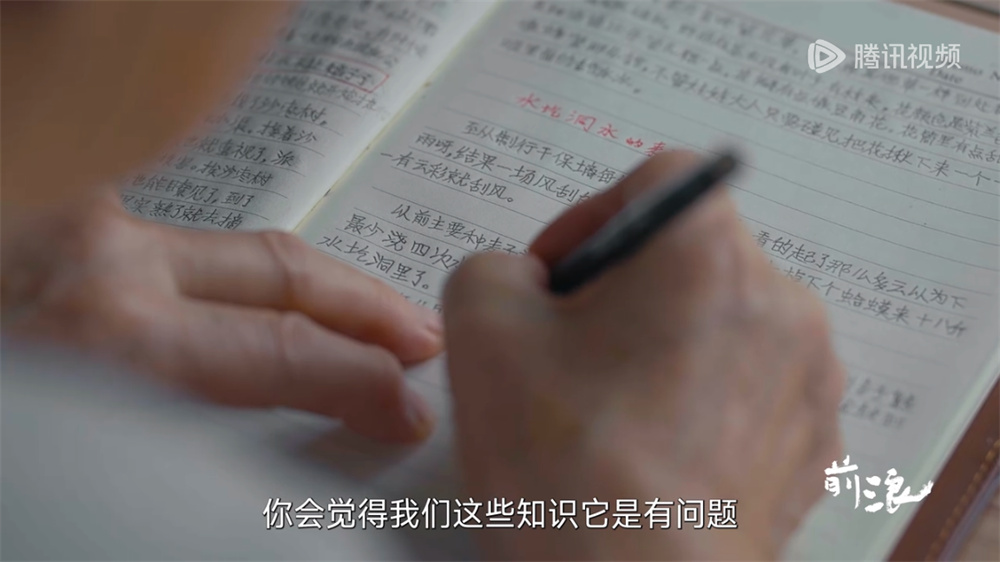
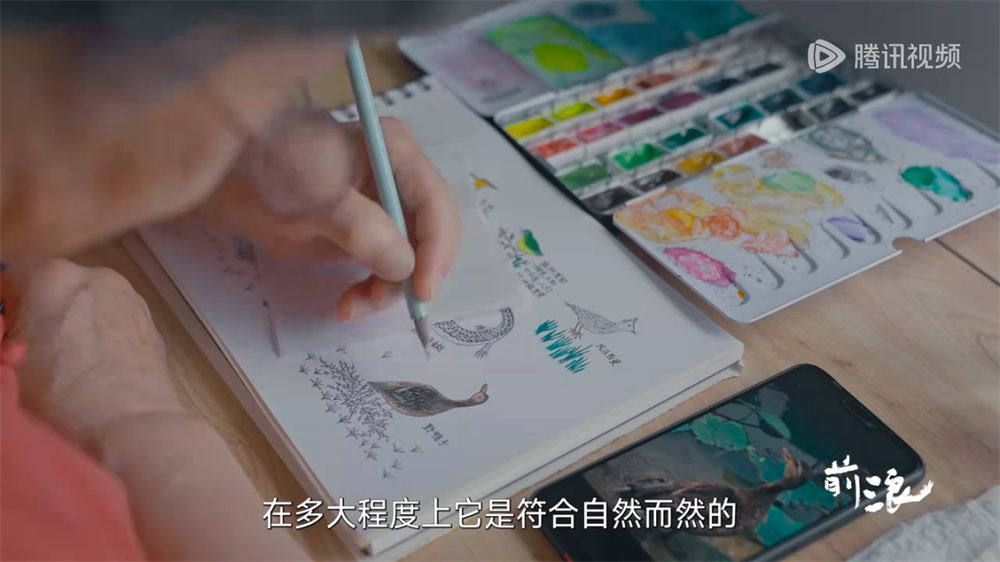
Screenshot of Front Wave
